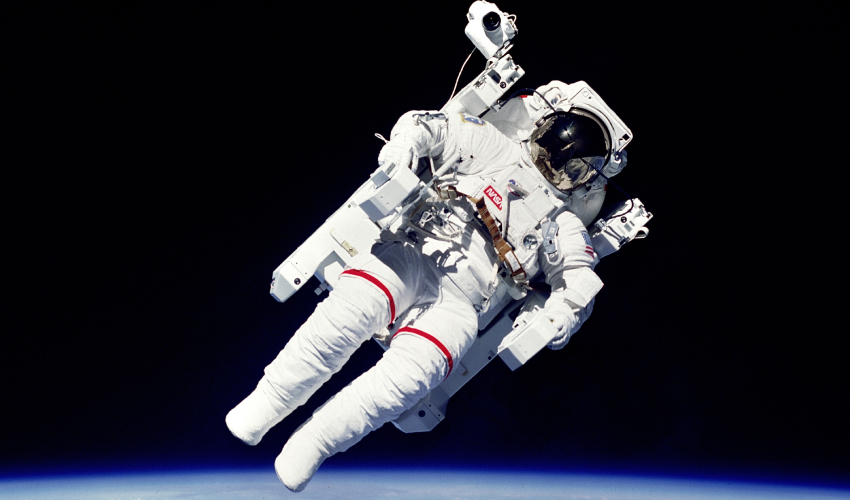Have you ever wondered how astronauts stay oriented in space? Well, it turns out that it's not an easy task. When astronauts leave Earth's surface, they lose many of the cues that help them figure out which way is up. This can be dangerous, and that's where training comes in. But now, scientists have come up with a cool solution using wearable gadgets that vibrate to give astronauts a better sense of direction.
Dr Vivekanand P. Vimal from Brandeis University in the United States is the brain behind this idea.
He explains that long spaceflights can cause lots of stress on astronauts, making them more prone to getting lost in space. And when an astronaut gets disoriented, it's a big problem because they can't rely on their usual senses any more.
To see if these wearable gadgets, known as vibrotactors, could help, the scientists ran some tests.
They put participants in a situation where their regular senses, like seeing and hearing, were of no use.
Instead, they had to rely on these buzzing vibrotactors to guide them and prevent them from crashing into things.
The participants were divided into three groups. One group received training on how to balance themselves in a special spinning chair.
Another group used vibrotactors, and the third group got both training and vibrotactors.
They all wore blindfolds, earplugs, and listened to white noise to make the tests even tougher.
Here's how it worked
Those with vibrotactors had four of them strapped to each arm. These devices would vibrate whenever the participants started moving away from the balance point.
The goal was to keep a special spinning chair as close to balance as possible during 40 trials.
The catch was that in half of the trials, the chair mimicked Earth's movements, so the participants could use their natural senses. In the other half, it acted like they were in space, with no gravity to help them.
The results were pretty interesting.
Everyone felt disoriented at first in the space-like trials. But the participants using vibrotactors did better than those who only received training.
The group with both training and vibrotactors performed the best over time. Even so, they couldn't perform as well as they did when Earth's gravity helped them out.
Dr Vimal pointed out that trusting these vibrotactors at a deeper, almost instinctive level is essential.
This might require some special training to make it work.
So, why is all of this important?
Well, as space exploration continues, these wearable vibrotactors could be super helpful for astronauts.
They might make landing on a planet safer, and they could be a game-changer for astronauts working outside their spacecraft.


























